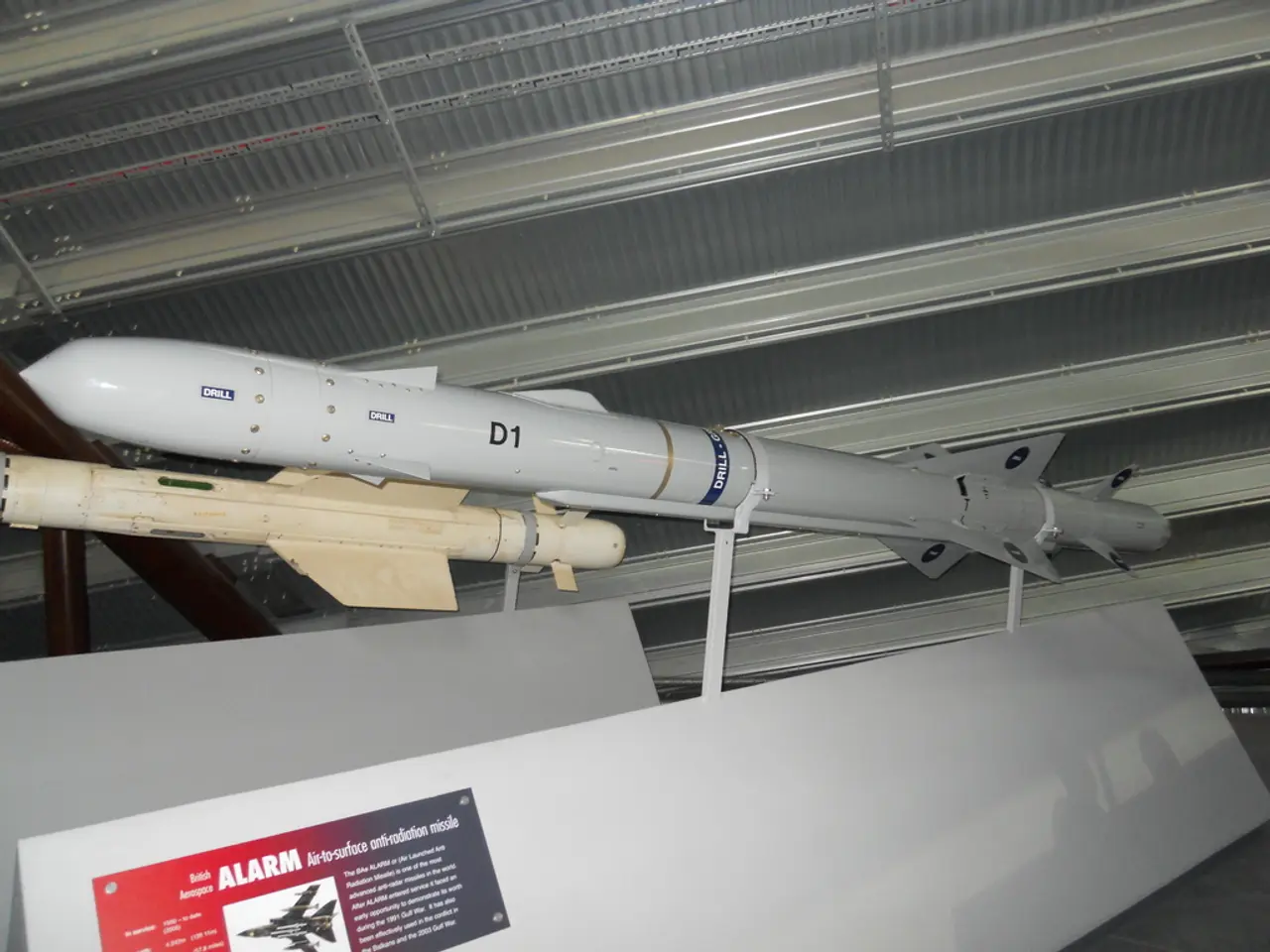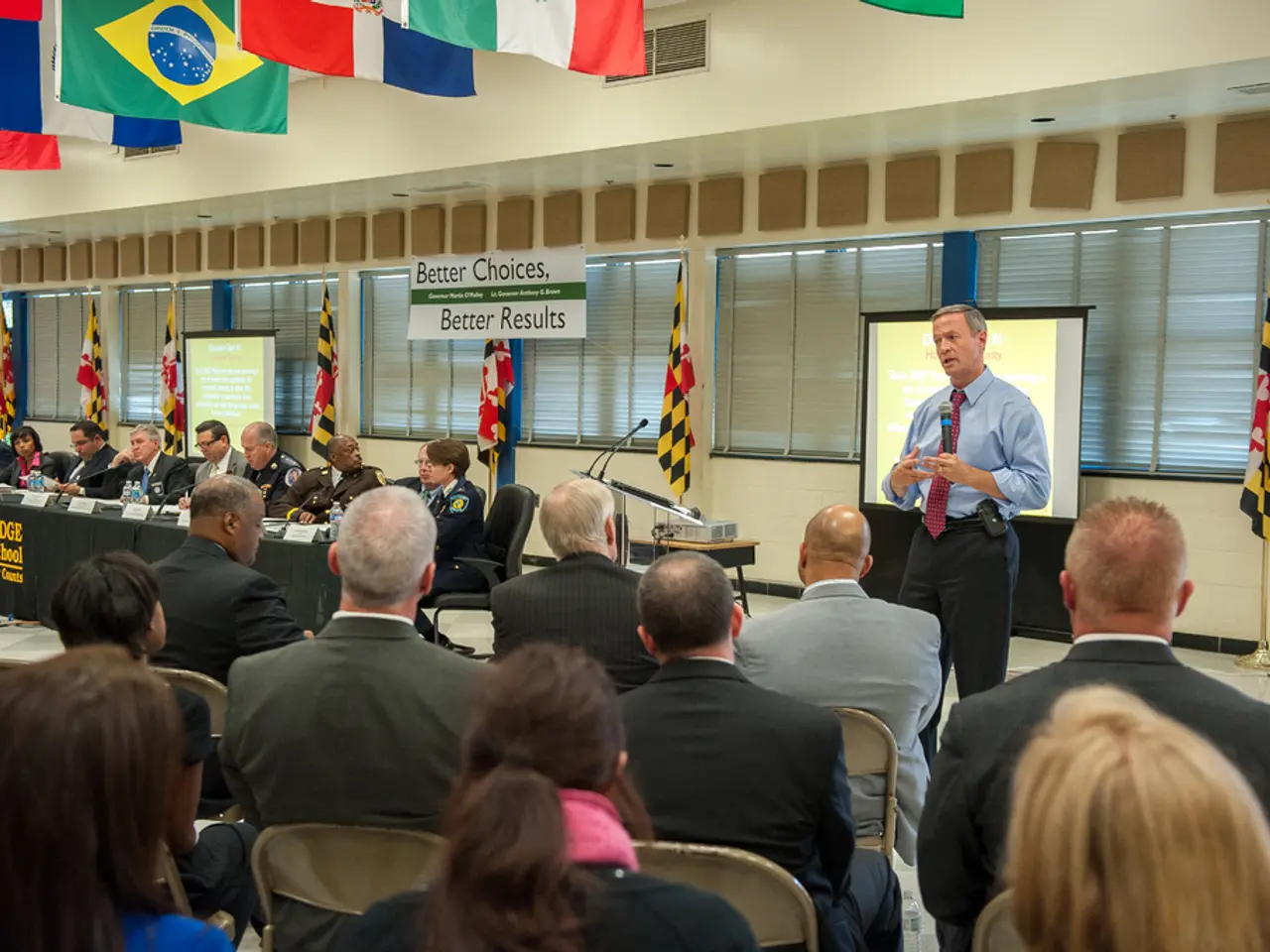First encounter between South Korea's Cho sees agreement on shared collaboration
In a significant development, Japanese Foreign Minister Takeshi Iwaya and his South Korean counterpart Cho Hyun held their first meeting on Tuesday, marking a new chapter in bilateral relations. The discussion took place at the Japanese Foreign Ministry in Tokyo.
Cho Hyun is on his first foreign trip since taking office on July 21, and this meeting with Iwaya was a significant part of his itinerary. Both ministers agreed to continue cooperation, including with the United States, in light of the deteriorating security environment surrounding the two Asian neighbors.
The ongoing trilateral cooperation between Japan, South Korea, and China is cautiously advancing but remains fragile, shaped by pragmatic necessity rather than deep trust. This cooperation focuses on non-security areas like disaster management, youth engagement, and economic challenges. Notably, meetings like the March foreign ministers' dialogue in Tokyo and the July 2025 working-level consultation on disaster management demonstrate ongoing efforts to maintain communication channels and institutional cooperation mechanisms.
However, this cooperation is constrained by distrust related to China’s regional behavior and the complex security dynamics involving North Korea and U.S. alliance interests. China’s assertive military activities near Taiwan, support for North Korea, and alignment with Russia in the Ukraine conflict create strategic mistrust, especially for Japan and South Korea. Seoul and Tokyo share Washington’s assessment of China as a growing threat to regional security, which complicates trilateral trust.
Regarding North Korea, trilateral cooperation is affected by differing national priorities and China’s perceived role. Japan and South Korea actively try to pressure China to moderate its support for Pyongyang. The security environment remains tense due to North Korea’s nuclear and missile programs, prompting the trilateral partners to seek closer coordination to address these threats while balancing their relations with China.
Despite the challenges, both ministers agreed to communicate closely to develop bilateral relations, which have been improving in recent years. Cho wants to develop relations with Japan in a future-oriented manner based on the policy of practical diplomacy. Iwaya welcomed this close communication, particularly since the inauguration of the South Korean President Lee Jae-myung's administration.
In summary, the meeting between the Japanese and South Korean foreign ministers underscores the ongoing institutionalized cooperation, focusing on non-security areas, while acknowledging the constraints due to distrust and security concerns. This delicate cooperation impacts regional security by maintaining dialogue and limited collaboration but falls short of a fully unified front against North Korean provocations or Chinese regional ambitions.
- The policy-and-legislation aspect of the discussion between Iwaya and Cho Hyun included the need for greater cooperation in dealing with the war-and-conflicts related to North Korea, especially in light of the distrust between Japan, South Korea, and China.
- General-news coverage may highlight the travel of Cho Hyun to Japan, as his first foreign trip since taking office, which included a significant meeting with Iwaya to discuss aspects of travel, particularly the need for increased cooperation in addressing security challenges in the region.
- In the realm of politics, both ministers agreed to prioritize environment issues in their bilateral relations, with a focus on non-security areas like disaster management and economic challenges, as part of their ongoing institutionalized cooperation.







